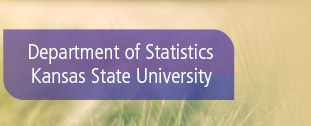Abstract
Meta-analysis is a statistical technique used to analyze large datasets containing results from numerous individual studies. It appears to be a promising approach in agricultural sciences. This study aimed to conduct a meta-analytic assessment to elucidate the influence of poultry litter (PL) application on crop yield, plant nutrient uptake, and soil fertility as compared to inorganic fertilizer (IF). A meta-analysis based on 116 studies (111 refereed articles and five unpublished data sets) with 2293 observations compared agronomic responses to PL and IF application. The natural log of the response ratio was used as effect size (ES) to express differences in the effects of PL and IF. The variances of estimated effects were estimated using within-study and between-study variation and were used to calculate a weighting factor. A random-effects model was used to test if the ES was significantly different from zero (α= 0.05). Crop yield was slightly less when evaluating PL additions during the 1st or 2nd year of application, while significant increases were observed with long-term PL application. PL influenced plant nutrient uptake with a slightly negative effect being observed for N uptake, but significant positive effects for P and K uptake. Positive effects on soil fertility were also observed with PL significantly increasing CEC, pH and concentration of soil C, P, K, Ca, and Mg compared to IF. Overall, PL can be used as an alternative nutrient source to enhance crop yield, increase plant nutrient uptake, and improve soil fertility.
Keywords
Poultry litter, Meta-analysis, Yield, Nutrient uptake, Soil properties
Creative Commons License

This work is licensed under a Creative Commons Attribution-Noncommercial-No Derivative Works 4.0 License.
Recommended Citation
Lin, Yaru; van Santen, Edzard; and Watts, Dexter
(2016).
"THE EFFECT OF POULTRY LITTER APPLICATION ON AGRICULTURAL PRODUCTION: A META-ANALYSIS OF CROP YIELD, NUTRIENT UPTAKE AND SOIL FERTILITY,"
Conference on Applied Statistics in Agriculture.
https://doi.org/10.4148/2475-7772.1494
THE EFFECT OF POULTRY LITTER APPLICATION ON AGRICULTURAL PRODUCTION: A META-ANALYSIS OF CROP YIELD, NUTRIENT UPTAKE AND SOIL FERTILITY
Meta-analysis is a statistical technique used to analyze large datasets containing results from numerous individual studies. It appears to be a promising approach in agricultural sciences. This study aimed to conduct a meta-analytic assessment to elucidate the influence of poultry litter (PL) application on crop yield, plant nutrient uptake, and soil fertility as compared to inorganic fertilizer (IF). A meta-analysis based on 116 studies (111 refereed articles and five unpublished data sets) with 2293 observations compared agronomic responses to PL and IF application. The natural log of the response ratio was used as effect size (ES) to express differences in the effects of PL and IF. The variances of estimated effects were estimated using within-study and between-study variation and were used to calculate a weighting factor. A random-effects model was used to test if the ES was significantly different from zero (α= 0.05). Crop yield was slightly less when evaluating PL additions during the 1st or 2nd year of application, while significant increases were observed with long-term PL application. PL influenced plant nutrient uptake with a slightly negative effect being observed for N uptake, but significant positive effects for P and K uptake. Positive effects on soil fertility were also observed with PL significantly increasing CEC, pH and concentration of soil C, P, K, Ca, and Mg compared to IF. Overall, PL can be used as an alternative nutrient source to enhance crop yield, increase plant nutrient uptake, and improve soil fertility.

